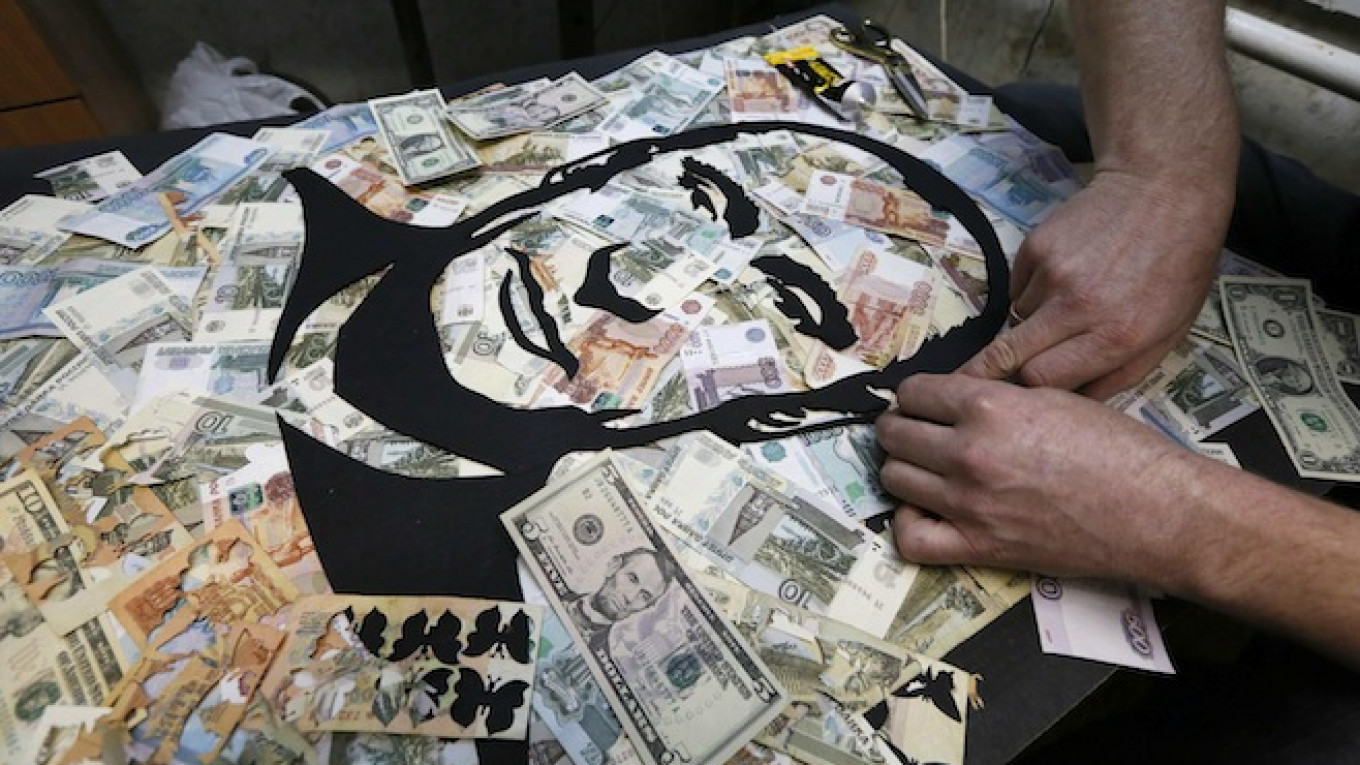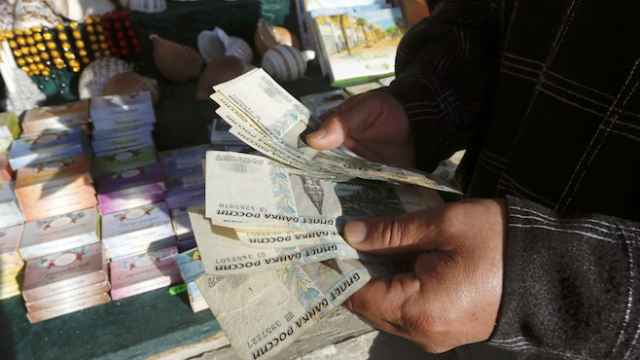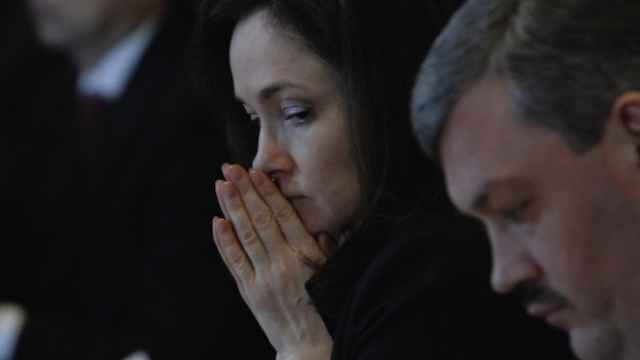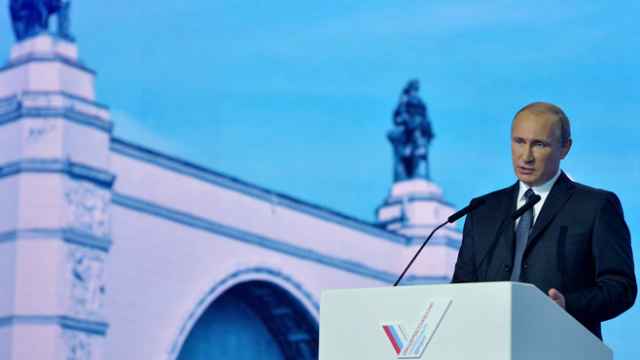With Russia's economy battered by economic sanctions and plunging oil prices, President Vladimir Putin has allowed the Central Bank to administer strong medicine, sharply raising interest rates even as it freed the ruble to float.
Such tough measures may well help push the country deeper into recession next year, but have so far staved off financial panic, runaway inflation or a currency meltdown like the one that helped catapult Putin into power in the 1990s.
Those who follow the Central Bank say the hawkish moves are a result of Putin, known for closely managing Russia's machinery of power, giving the bank's technocrats free rein.
"There is ongoing criticism of the Central Bank and of the whole government being Putin's lap dog," said a high-ranked government source. "But all things considered, the Central Bank is now much more autonomous than it is broadly perceived."
The high interest rates will hurt. The European Bank for Reconstruction and Development says recession is certain, predicting 0.2 percent contraction for the full year of 2015.
Politicians have grumbled. Economy Minister Alexei Ulyukayev sent a letter to the Kremlin in the summer urging greater "cooperation" between the bank and the government, viewed as a plea for looser policy.
"There is a tension between the government and the Central Bank as regards growth. The effect of these stabilization policies is going to be to deepen the recession," said Christopher Granville, managing director of London-based consultancy Trusted Sources.
Putin himself has complained about high borrowing costs. But so far, he seems to trust the hawkish instincts at the bank.
"What the Central Bank is doing is in line with what the leadership wants, in a strategic way," said Granville. "Stability is the absolute top priority, rather than avoiding negative growth at all costs."
Still, there is always a chance that Putin can change his approach. Remarks he made Tuesday hinted as much. Speaking to Finance Minister Anton Siluanov, he called for "teamwork between the Central Bank and the government."
Obsession
Exchange rates are an obsession for Russians since the 1990s, when hyperinflation after the fall of the Soviet Union wiped out the financial system, destroyed savings and brought the economy to its knees.
A second currency collapse and default in 1998 propelled Putin into power the following year, and a stable ruble has been one of the most prized achievements of his rule ever since.
Putin himself makes much of the Central Bank's independence.
"We — from the executive power level — do not meddle in the policy of the Central Bank," he said this month when meeting IMF head Christine Lagarde. "The Central Bank, in accordance with the law, conducts an independent policy. But of course we look carefully at what is happening."
In an e-mailed comment, the bank said its independence, "one of the fundamental principles in understanding of monetary policy," was enshrined in the constitution.
Some of Putin's critics say he keeps out of monetary policy because he feels insecure about an area outside his expertise.
"The Central Bank of Russia is the most independent institution in modern Russia," said Sergei Alexashenko, a former deputy Central Bank governor and critic of the president.
"That originates from Mr. Putin's inability to understand how monetary authorities operate. He understands the importance and influence of the Central Bank but is afraid to influence it in a strong manner."
Geeks in Glasses
Unlike at some ministries and top companies, the bank's management does not include any of Putin's powerful old friends.
"It's just a bunch of glasses-wearing geeks; you can argue more or less competent, but geeks," said the high-ranked government source.
Putin has put his trust in the bank's governor Elvira Nabiullina, 51, at the bank's helm for 17 months after serving Putin for years as economic advisor and cabinet minister.
"She has turned out to be stronger than expected as the Central Bank governor," said Anders Aslund, senior fellow at the Peterson Institute for International Economics in Washington.
Nabiullina, in turn, has put monetary policy in the hands of Ksenia Yudayeva, a U.S.-trained economist regarded as one of the brightest in the country.
The ruble stability of the Putin years has been underwritten by vast currency reserves earned from selling oil and gas. But when oil prices fell and sanctions were imposed over the Ukraine crisis this year, even Russia's $420 billion war chest showed its limits.
After spending $30 billion supporting the currency in a single month, Nabiullina brought forward long-awaited plans to float the ruble, abandoning efforts to keep the exchange rate within an official band.
On the morning of Nov. 10, when it was announced, even the heads of the bank's departments were taken by surprise, sources said, emphasizing Nabiullina's ability to prevent leaks.
Before she cut the ruble loose, Nabiullina sharply hiked interest rates to ensure that savers would hold rubles and prevent a panicked flight, like the one that hit in 1998.
The ruble is still some 29 percent down against the dollar, but has rallied in recent days. Earlier this week, Nabiullina stoically defended the decision to float the currency.
"It is absolutely impossible to control the exchange rate … in the current economic conditions that the Russian economy is now in, by keeping its dependency on the price of oil," she told lawmakers in parliament.
A Message from The Moscow Times:
Dear readers,
We are facing unprecedented challenges. Russia's Prosecutor General's Office has designated The Moscow Times as an "undesirable" organization, criminalizing our work and putting our staff at risk of prosecution. This follows our earlier unjust labeling as a "foreign agent."
These actions are direct attempts to silence independent journalism in Russia. The authorities claim our work "discredits the decisions of the Russian leadership." We see things differently: we strive to provide accurate, unbiased reporting on Russia.
We, the journalists of The Moscow Times, refuse to be silenced. But to continue our work, we need your help.
Your support, no matter how small, makes a world of difference. If you can, please support us monthly starting from just $2. It's quick to set up, and every contribution makes a significant impact.
By supporting The Moscow Times, you're defending open, independent journalism in the face of repression. Thank you for standing with us.
Remind me later.






